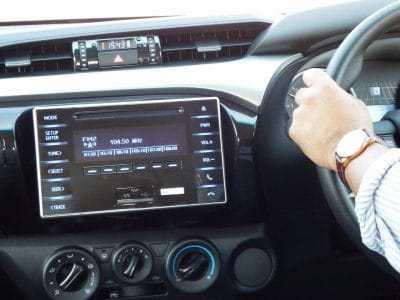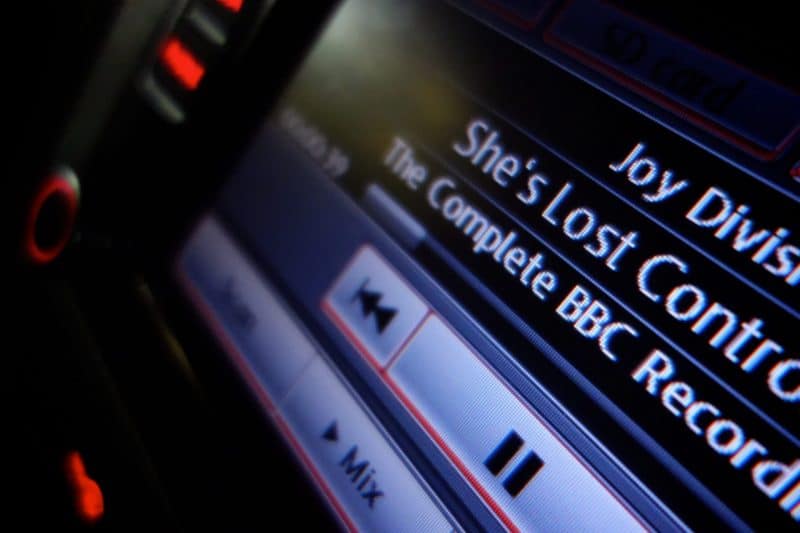
It has long been known that music has certain effects on a person’s mood. Some people say rock music and other loud music makes a person who listens to it more aggressive. Even more people claim classical music with slow tempos make the listener calm and relaxed. If this is true, does this also transfer to drivers who are listening to music in the car? Can listening to classical music make a calmer driver? Can listening to rock music make one a dangerous driver?
At present there are not too many statistics that relates car crashes and listening to music to aggressive or calm driving behavior. Available studies and statistics concerning distracted driving provides insight to the distractions drivers have but very rarely have a cause and effect due to music.
Table of Contents
Driver Responses
To understand the exact effect of music on drivers, interviews were conducted and multiple people were solicited to voice their opinions on music preferences while they were driving and what effect or mood the driver experienced.
- Listening to my favorite music brings puts me in a good mood and I become more tolerant of other motorists on the road.
- Listening to music breaks the monotony of a long drive helping me to enjoy driving more.
- Listening to music reduces the boredom felt during a traffic situation. The music reduces my irritation.
- Music is anchored on taste and preference. Older people tend to get distracted or irritated to loud and thumping music while young people seem to enjoy it. A possible explanation is the beat and volume that affect the heart of the listener increasing heart rate and blood pressure.
- A teenager stated listening to rock music did not make her drive over the speed limit. She said her driving is the same regardless of the genre of music she listens to.
Clearly each of these responses are subjective. Different people respond differently to situations. Additionally, a music player in a car is a common feature allowing drivers to listen to multiple tracks. Such musical preferences, may be dictated by the age of the driver.
Musical Studies and Driving
Although not incredibly large, there has been a few studies conducted on music and driving.
Brodsky and Slor (2012). Background Music as a Risk Factor for Distraction among Young Drivers: An IVDR Study:
Brodsky and Slor studied 85 young novice drivers (50 males and 35 females) who have held a valid driver’s license for at least seven months. The participants of the study were recruited from an area covering 650 square kilometers. Their socioeconomic status ranged from low to upper middle class families. The majority of drivers affirmed they listen to music while driving. The young drivers were randomly assigned to drive listening to their preferred music, alternative music (provided by the researcher), and no music. The researchers concluded that music is not a risk factor for perceptual distraction that could lead to impaired vehicular control. Nevertheless they are certain that music is a contributing risk factor and that there is a need to conduct a study in a more realistic setting rather than the usual PC controlled simulations, controlled situations and survey studies
Psychologist Ayça Berfu Ünal study on performance:
Experiments carried out by environment and traffic psychologist Ayça Berfu Ünal found that listening to music while driving has very little effect on driving performance
Unal stated that “experienced motorists between 25 and 35 years of age are perfectly capable of focusing on the road while listening to music or the radio, even when driving in busy urban traffic.” According to the researcher, in normal situations the driver will tend to turn off the music when the road situation becomes more challenging to the driver. During the experiment, the drivers were not allowed to reduce the volume or turn off the player when the driving became more challenging. It was found out that the drivers are capable of shutting out the music from their mind to focus on the driving. Participants could not recall what music was played in those particularly intense situations.
Unal concluded that music makes little difference to the driving performance when people are conscious of the traffic situation and comprehends their own driving skills. If you are more affected by loud music, then you should probably not drive and listen to that kind of music. The only note the researcher wished to add was whether or not it would be good to determine the effect of music on the driving performance of 70 year old drivers and above, as well as young people who are learning to drive, to see if they would cope with the distraction of music the same way.
The Influence of music on Mental Effort and Driving Performance
This particular study found that listening to music increased one’s mental effort while driving, regardless of the driving situation being complex or monotonous. This gives support to the general assumption that music can be a distracting auditory stimulus while driving. However, drivers who listened to music performed as well as the drivers who did not listen to music, indicating that music did not impair their driving performance.
Contact Us
Clearly each of these studies suggests listening to music does not impair driver’s performance as long as the driver is a capable driver and is mature enough to set limits based on skills and experience. Driving safely is a personal choice and is dependent on many factors on the road. Ultimately the driver needs to choose to not be distracted. If you have been injured by a distracted driver and are seeking a consultation, please do not hesitate to contact us at Good Guys Injury Law. Our number is 801-506-0800.
Image courtesy of PublicDomainPictures.net
